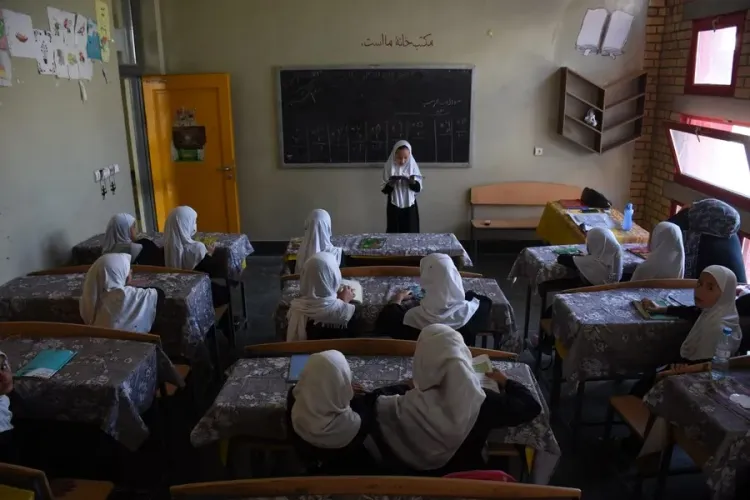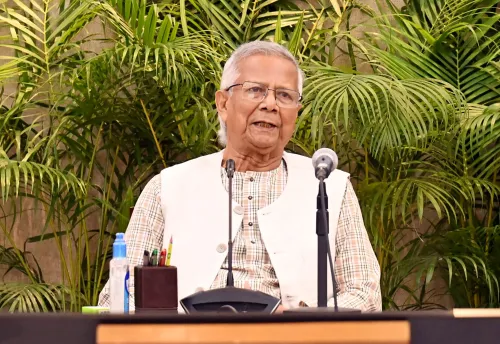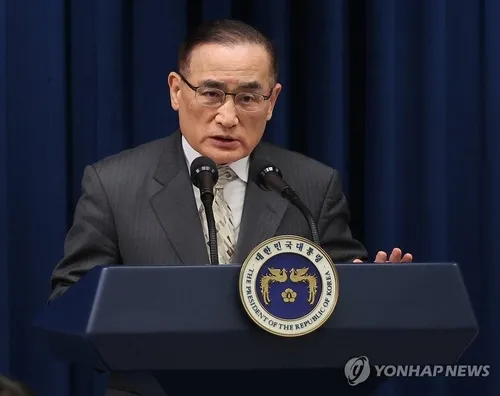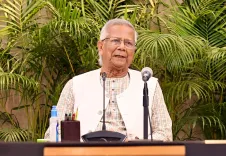UN Agency Advocates for Ending Education Ban on Afghan Girls

Synopsis
Key Takeaways
- UNICEF urges for the immediate lifting of the education ban on girls in Afghanistan.
- The education ban has persisted for three years, affecting millions.
- Consequences include increased child marriage and maternal deaths.
- UNICEF has enabled education for 445,000 children despite the ban.
- Afghanistan remains the only country where girls are barred from secondary education.
New York, March 22 (NationPress) The United Nations children's agency has called for the immediate reinstatement of school access for all girls in Afghanistan as the new academic year begins. This plea comes as the country observes three years of restrictions on girls' secondary education. The Afghan Taliban's decision to deny educational rights continues to jeopardize the futures of millions of Afghan girls.
The United Nations Children's Fund (UNICEF) warns that if this ban remains in place until 2030, more than four million girls will have lost the opportunity for education beyond primary school.
"The ramifications for these girls — and for Afghanistan as a whole — are disastrous. The ban adversely affects the healthcare system, the economy, and the nation's future. With fewer girls receiving education, they face an increased risk of child marriage, leading to severe impacts on their health and well-being," stated UNICEF Executive Director Catherine Russell.
"Moreover, the nation will suffer from a lack of qualified female health professionals, which poses a threat to lives. With a decline in female doctors and midwives, girls and women will not get the essential health services they require. We anticipate an additional 1,600 maternal deaths and over 3,500 infant fatalities. These figures are not mere statistics; they signify lost lives and broken families," she further explained.
Russell emphasized that for over three years, the rights of girls in Afghanistan have been systematically violated. She insisted that all girls must be allowed to return to school immediately. If these capable and bright young girls continue to be deprived of education, the consequences will echo for generations. Afghanistan cannot afford to neglect half of its population.
Reaffirming UNICEF's commitment to Afghan girls and boys, she noted that despite the ban, the agency has facilitated access to education for 445,000 children through community-based learning—64 percent of whom are girls. UNICEF is also working to empower female educators to serve as positive role models for girls.
"We will persist in advocating for the right of every Afghan girl to receive an education and urge the de facto authorities to lift this ban without delay. Education is not merely a fundamental right; it is the foundation for a healthier, more stable, and prosperous society," she concluded.
Afghanistan is distinguished as the only nation globally where girls and women are strictly barred from secondary and higher education. According to UNESCO data released in 2024, 1.4 million Afghan girls have been intentionally denied schooling. Access to primary education has also drastically declined, with 1.1 million fewer girls and boys enrolled in school.
During the 58th session of the Human Rights Council this month, UN High Commissioner for Human Rights Volker Turk remarked that women in Afghanistan are currently stripped of their most fundamental rights.
"In Afghanistan, women and girls are subjected to gender apartheid that is unparalleled in today’s world. They are virtually prisoners within their own homes, denied the most basic freedoms necessary for a normal existence, including movement, education, and employment. I am profoundly concerned for the long-term future of a country that is inflicting harm upon itself on a national scale," said Turk.










